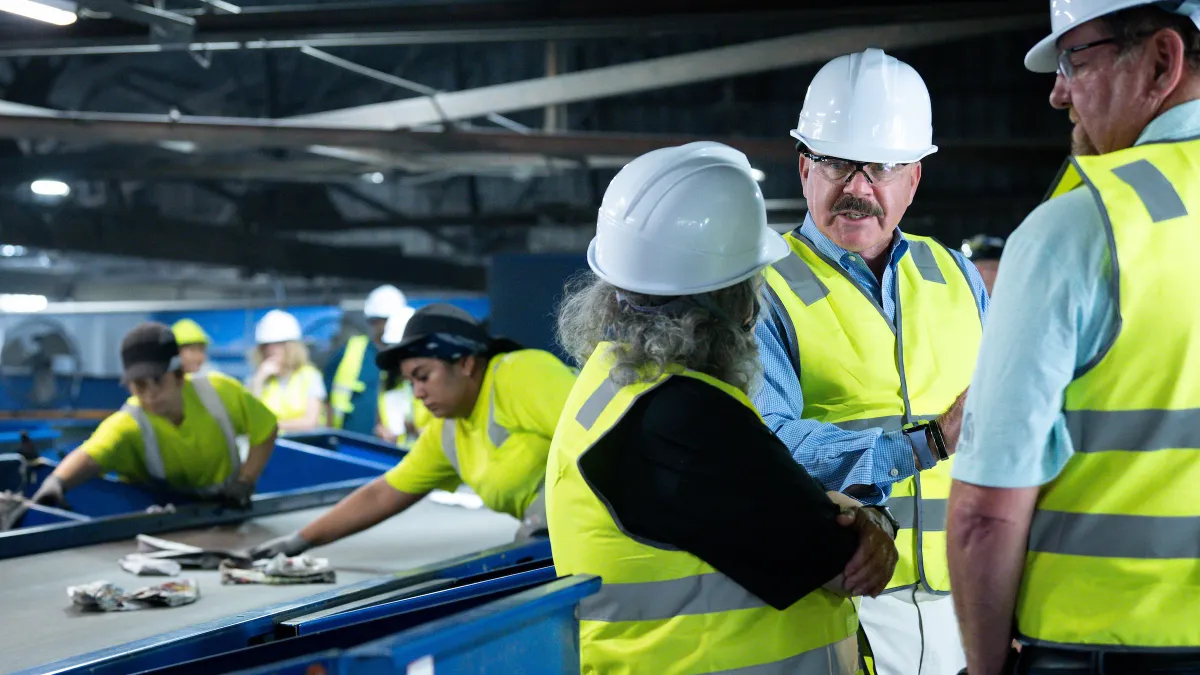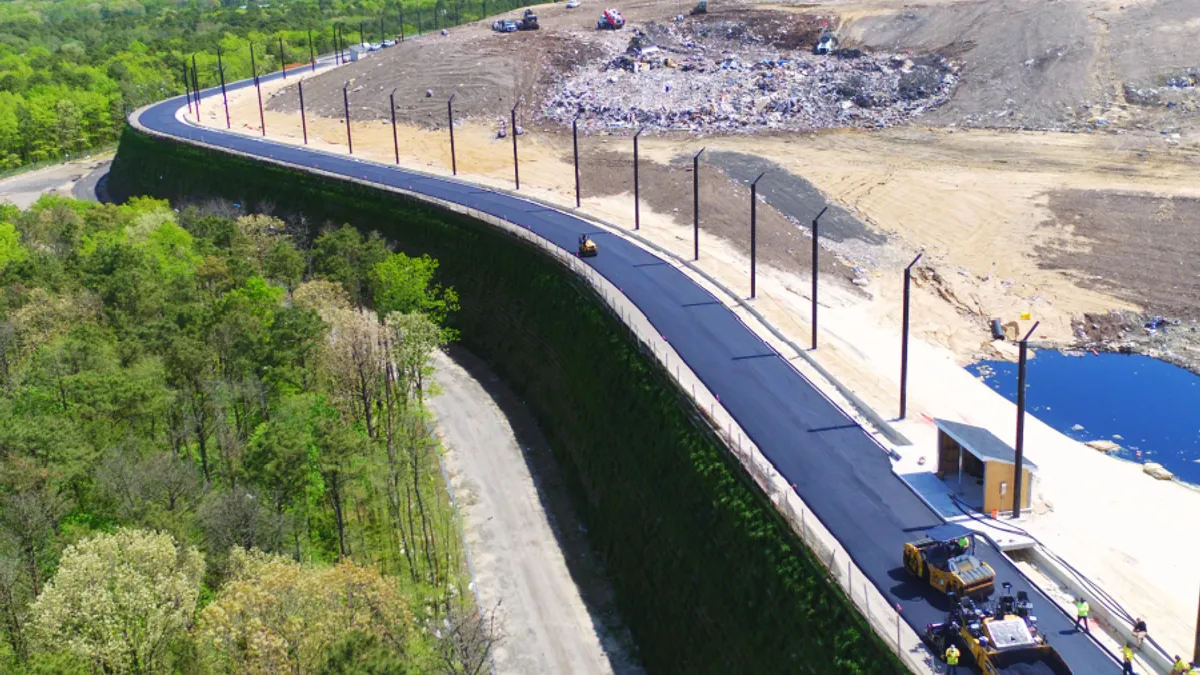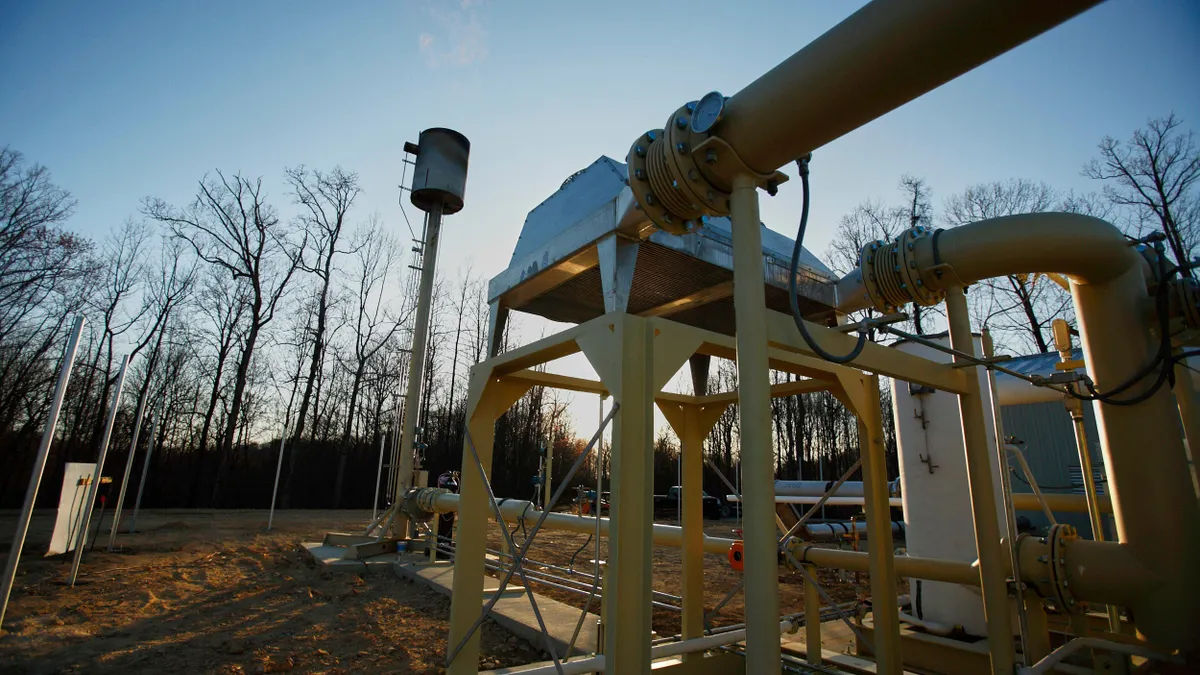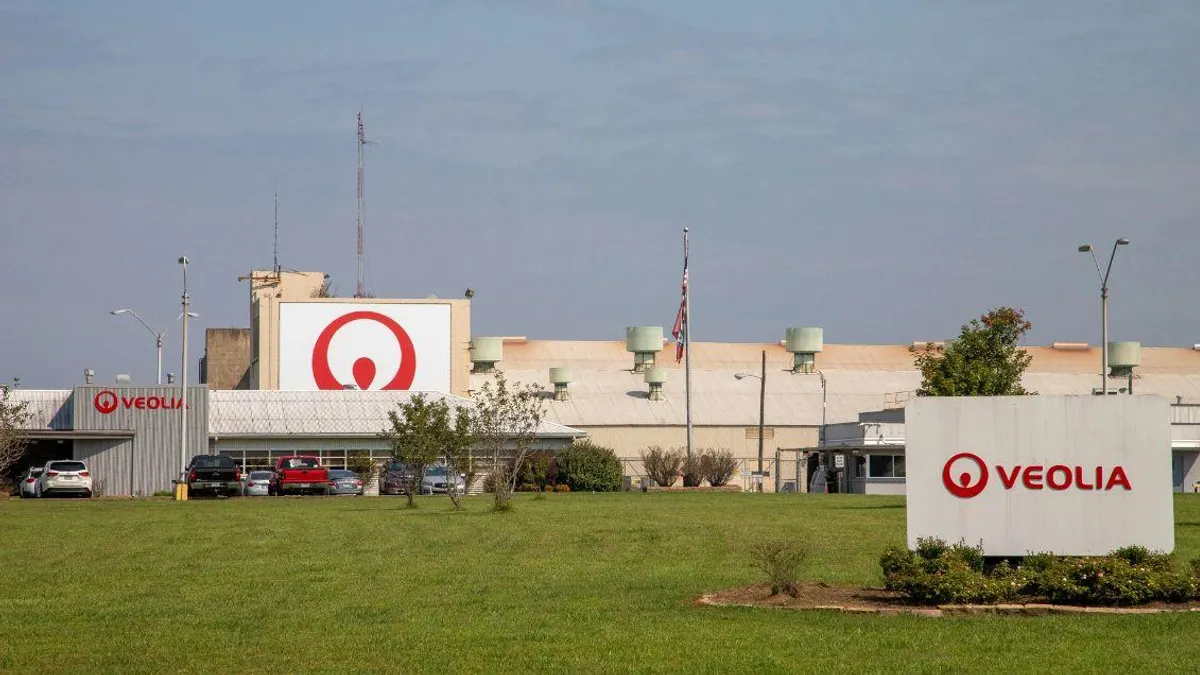Michael E. Hoffman was well known in the industry before the National Waste & Recycling Association announced in April that he would become its CEO. Now he’s seeing the industry in a new light as he works to position the industry’s largest trade association as a more proactive partner in shaping recycling and waste issues for years to come.
Hoffman, a former Stifel financial analyst, has nearly 40 years of environmental industry experience and has spent years developing relationships with leaders from NWRA’s large and small companies. He was inducted into NWRA’s Hall of Fame in 2020.
Now at the helm of the organization, Hoffman wants to improve the public’s perception of the industry by clearing up misunderstandings about recycling, promoting battery recycling as a safety and environmental benefit, and advocating for numerous regulatory changes he says will create a “better, healthier place” without negatively impacting waste industry jobs and operations.
Hoffman has spent the last few months visiting local chapters and touring facilities across the country. He checked in on Recology’s hydrogen fuel cell vehicle pilot in San Francisco and previewed new MRFs from Rumpke in Ohio and GFL Environmental in Wisconsin. He also caught up with White House officials at WB Waste Solutions in Washington, D.C. and visited WM’s headquarters in Houston, among other trips.
Hoffman recently talked with Waste Dive about his vision for carrying NWRA forward, including the association’s strategy for extended producer responsibility, its view on landfill gas emissions and climate initiatives, and its future plans for WasteExpo.
“I hope, in my tenure as CEO of NWRA, that when we look back, we will change the relevance of this association where we become part of the discussion at the beginning of a conversation and not an afterthought at the end of the conversation,” he said.
This interview has been edited for length and clarity.
WASTE DIVE: You're very familiar with this industry, but you came into it from a different lens at Stifel. What was your strategy for getting to know NWRA’s members and priorities to serve the industry in this new way?
MICHAEL E. HOFFMAN: This is first and foremost an advocacy organization, predominantly at the local level. Because this is a very local business, even though we do have significant things going on at the federal level. There was not a lot of visibility from NWRA headquarters … so I've spent the first 100 days getting out and talking to them.
We have played a lot of defense as an association and reacted to things that are happening. I hope to see us bring more offense and more of a balance where we're in front of the issues.
There's actually not a need for a dramatic rebranding. We don't really have much of a message, in the sense that this is an industry that gets up every day — whether it's solid waste, industrial, hazardous, medical, construction, demolition — and they just do the work very quietly, day in and day out.
So watch us change our narrative. One of the things that I discovered while I've been here is that a surprising percentage of the general population doesn't believe we're really recycling. There's no way that a $100 billion industry has spent as much capital putting in processing capacity and collection vehicles and containers for some idea that we’re fooling you.
Part of our story is this: Not only are we doing it, but look at the true circularity that we have been able to create, like modernizing infrastructure that allows you to get to the level of separation so you have a quality [feedstock] that gets FDA approval and use that PET bottle again as a PET bottle.
How is NWRA approaching this advocacy from a policy standpoint? What do you see as NWRA’s main policies, and can we expect that to change at all with you at the helm?
EPR is a big one. We've successfully won on battery EPR in the state of Illinois, and we led that fight as an association. We're taking model legislation to other states. We're currently working with Pennsylvania. We may run out of runway in their legislative calendar for it to be done in ‘24, but we're really close to starting again in 2025 and we've done a lot of the education.
EPR for portable rechargeable batteries — that's the target. The embedded battery community is not there yet. They don't fully appreciate all of the issues yet, nor do they particularly appreciate their own [product liability risk].
You'll see us embark on a campaign in ‘25 to raise awareness about recycling batteries, specifically around Illinois. That bill goes in effect January 1, 2026, so we have all of 2025 to start an education program. We’ll also begin on a national basis a more broad-based and general [education effort], not just specific to an EPR program, that will really draw attention to what you should and should not do.
Then, on to packaging EPR. We want to get in front of it and ask the question: Why do you want packaging EPR? If the answer to that question is they want to improve the rate and the access to recycling, the vast majority of the places that are doing packaging EPR have a population where 90% have access to curbside trash and recycling already. You won't change that metric.
Now, if you tell me that you're trying to improve recyclability, meaning the recovery rates, our response to it is that EPR won't do that either. What you really want is content commitments. The packaging industry has to start using [recycled material] at a certain percentage. It will stabilize secondary markets, which improves investment, but it also stabilizes secondary markets for materials that currently don't have a great secondary market. Therefore, we would increase the recovery rate of the waste stream into a reuse setting.
We're getting in front of those [producer responsibility organizations] and making sure that the [NWRA membership] position is understood correctly. We're coming in with data and showing them the facts. What are you trying to accomplish? If you’re trying to transfer the cost of recycling back to the original packaging manufacturer, EPR will successfully do that, but you will increase the cost by two to three times. So understand the inflation aspects of that.
Where do landfill issues come into play in NWRA’s policy strategy?
We're also working on emissions issues with regards to landfills. We absolutely acknowledge that we generate gas … EPA is starting to adopt a measurement method, but not following its own rules of how to go about that.
The EPA’s calculation is that if you put a well in to catch the gas they assume you're leaking, therefore we're penalized for actually improving collection. Even [EPA] understood that the model was flawed. What we need is an agreement. How are we all going to measure this?
We're making sure EPA is accountable for how they're measuring the gas so that the membership understands how they then need to be managing all of that in their own relationship with the regulator.
We're not afraid of the data. As we begin to collect more real-time data about landfill emissions — because we're going to do that as an industry — our response will be, “listen it may be at X units, but we have a plan for how to reduce it and lower the intensity.” You’ll see us being far more visible about how we can accomplish those things as well.
Nobody actually knows that for 25 years solid waste was the single-largest producer of renewable energy as baseload power into the utility grid. We converted landfill gas into electricity, and it was the single-largest renewable energy source as a base load until about five years ago, when solar passed us. It's not peaking power, which is what solar is bought as or wind is bought as. We guarantee it'll show up, so we need to be better at one, making sure everybody understands that we do that proactively, and two, if there's a next best way to do this, we'll do it.
We're a few weeks away from the presidential election. What impact do you think the outcome might have on some of the work that NWRA is doing, and what issues may become more notable for members post-election?
In my prior life, I used to tell my clients that presidential elections may matter on a personal level, but they didn't really mean that much to the industry because the regulatory environment was really mature and well established. However, these last 12 months, the Biden administration pushed through a tremendous amount of rulemaking, not just the EPA but the Department of Transportation, Department of Labor, Department of Energy.
So I expect, if you have a blue [administration], none of those rules get changed. If you have a red [administration] in the White House, then you have the opportunity to revisit a large percentage of those rules that were promulgated after the end of April.
I think the [PFAS drinking water standard rule] was done before it would have been caught in the Congressional Review Act. But the EPA didn't follow its own cost analysis procedures correctly, so it could have opportunities for review.
Could EPA’s [PFAS hazardous substance designation] be revisited? It’s entirely possible, because they didn't do a cost analysis [and] there are unintended consequences. So if the district court doesn't rule on our petition, then I think you could see, from a policy standpoint, a new administrator and a red administration could come in and say, “if we're going to do this, we got to do it correctly.”
I suspect a red administration would also take a different view on some of the [Inflation Reduction Act] Section 45 [production tax credits], whether it’s section Q or V or X or Z. For the blue administration, a lot of their choices are made with a climate lens. I'm not suggesting that the red administration is anti-climate. I think they would change their perspective from climate to energy security.
Is there a role for carbon still in the conversation where the current climate view is pretty much zero carbon? There's less willingness to acknowledge that [compressed natural gas] is a good next alternative to high intensity carbon. There's a mindset of “it's a carbon, therefore no,” even though we allow for a transition path.
A big part of NWRA’s public-facing work happens at WasteExpo, along with some of its education and outreach programs. What’s the plan for those going forward?
From an education standpoint, we curate the general sessions at WasteExpo and are the driver of that content. Going into 2025 and beyond, I think you'll see fewer sessions but higher quality, so they aren’t competing with each other.
The Investor Summit will continue, but it's a partnership with NWRA and Brian Butler from Stifel, who took over my position. We're doing just the summit on Monday, and then in response to members’ request to not pull people off the floor, we're going to try and create a point in the day on Tuesday where there's nothing competing with the trade show. Our Safety Symposium will be held early in the week, so that it improves the attendance and that is a big part of our safety message.
Disclosure: WasteExpo is run by Informa, the owner of Waste Dive’s publisher, Industry Dive. Informa has no influence over Waste Dive’s coverage.





















